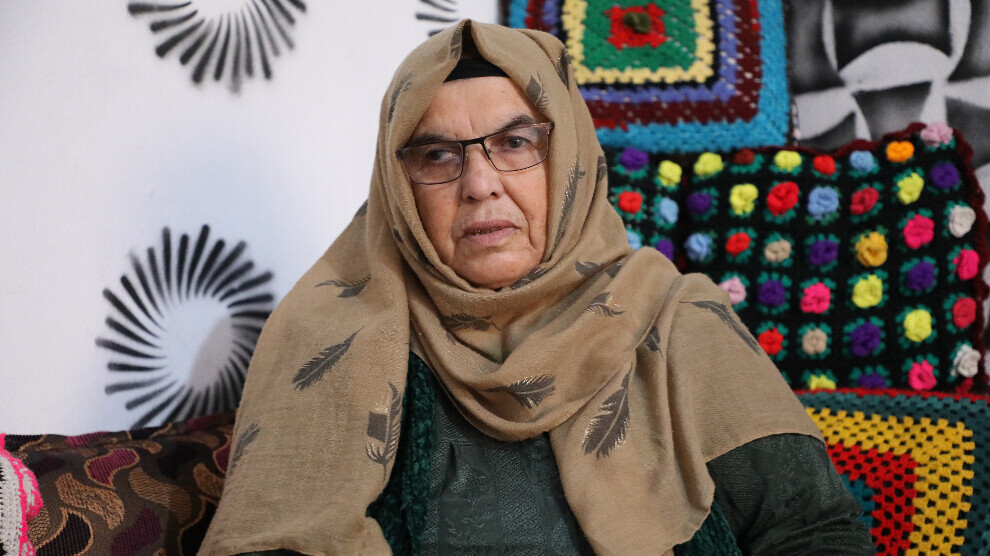Ayşe Sadun, the pleasure of reading Kurdish books
Ayşe Sadun said: “Even at this age, I wanted to be a Kurdish teacher. I love Kurdish very much. Our children and grandchildren who grew up with the revolution can easily learn their native language."
Ayşe Sadun said: “Even at this age, I wanted to be a Kurdish teacher. I love Kurdish very much. Our children and grandchildren who grew up with the revolution can easily learn their native language."

Ayşe Sadun, 67 years old, said that she loves the Kurdish language and that her longing for it has not ended. “Our children and grandchildren who grew up with the revolution are learning their native language easily. They read, write and speak Kurdish. Now my grandchildren can live comfortably what I longed for."
Ayşe Sadun was born in 1954 in the village of Kuldîman in Dêrîk. She lives surrounded by nature and she collects grass to graze animals in the village. She attaches great importance to agriculture and animal husbandry, and she is busy until late at night. When she was only 10 years old, she also did handicrafts and learned her native language, Kurdish, in front of a kerosene lamp at night. Due to the monolingual mentality of the regime of the time, she learned Kurdish secretly, and after her marriage, she was forced to stop reading by her husband.
Sadun, who makes handicrafts such as bags, shawls, booties and wallets using old clothes, said: “I give my handicrafts to anyone who needs them. My neighbours are happy, and I am happy for it.”
She learned Kurdish in the 1960's
Sadun said that Kurdish is a rich language, and that despite all the work of village life, she does not neglect learning Kurdish. Stating that poet Cigerxwîn went from village to village and explained the importance of Kurdish, she added that he taught Kurdish to his father, and his father taught her Kurdish. “My father first taught me the alphabet. I was putting words together like a game. There were no books back then. We had a pen and a small notebook. We could barely find those items either. If it was known that I learned Kurdish, the regime's pressure would increase even more. That's why my father was teaching me secretly."
The joy of reading a Kurdish book
Sadun said that she could not continue reading and writing after getting married at the age of 22. “My husband did not accept me writing. Around that time, I received Hemîdê Hecî Derwêş's book. I wanted to read the book, but my husband did not allow me to read it. He even said that he would never let me keep that book. Back then it was not tolerated and shameful for a woman to read or write. After that discussion, I could never open a book again until he passed away. After his death in 2003, I started reading Cigerxwîn and Hemîdê Hecî Derwêş again. That was, some 30 years after that first time.”
My grandchildren can freely learn now
Sadun said that reading and writing Kurdish is a source of joy, and added: “Reading Kurdish is very nice. I wish I could go back to my childhood years and had the same conditions we have now. The education of our children and grandchildren is in Kurdish. Thanks to the Rojava Revolution, we now have schools providing education in Kurdish. I am 69, yet, I wanted to be a Kurdish teacher. I love Kurdish very much. Now, luckily, my grandchildren can freely learn and speak their mother tongue."